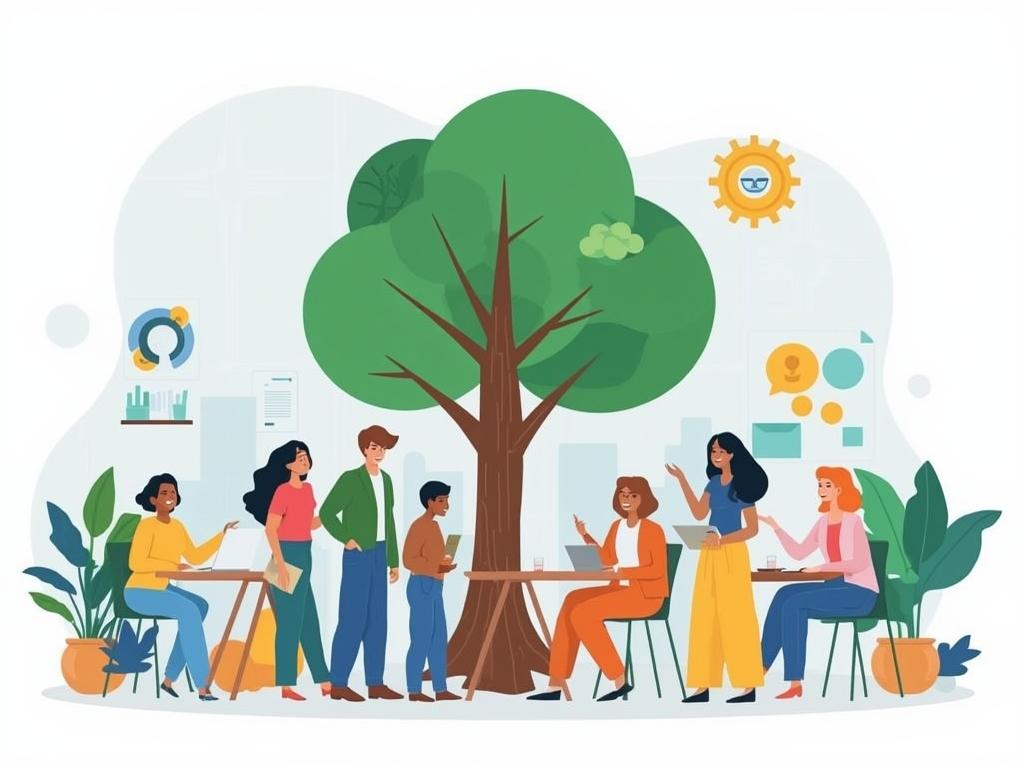The Impact of Professional Longevity: How Increased Life Expectancy is Redefining Careers and Retirement
Imagine working until you're 70, 75 or even 80. Does it seem far away? With the increase in life expectancy, this reality is already transforming the job market. People are living longer and, consequently, need to stay active for longer. But how does this affect career planning, retirement and even the way companies view their employees?
In this article, we will explore the changes brought about by professional longevity. From the need for constant retraining to new pension models and physical and mental challenges. You will understand why retirement is no longer synonymous with "stopping" and how to prepare for a professional career that can last decades longer than the previous generation.
Shall we get started?
The Longevity Revolution and Its Impact on the Labor Market
The 21st century has brought medical advances, improvements in quality of life and, of course, a significant increase in life expectancy. According to IBGENowadays, the average Brazilian lives 76 years - a leap compared to previous decades. This means that while retirement at 60 or 65 was once the norm, today many professionals remain active beyond that age.
But what does this change in practice? Companies are reviewing hiring policies, training and even benefits. Older professionals bring experience, but also require adaptations - from flexible working hours to specific health programs. On the other hand, those who are aging in the market need to keep up to date, preventing knowledge from becoming obsolete.
Have you ever thought about what your career will be like in 20 years' time? Will your sector still exist in the same form? The answer may lie in the ability to reinvent oneself. Professionals who once planned a linear career now need to consider multiple transitions, learning new skills along the way.
Advertising
A real example? A 55-year-old civil engineer who, faced with automation in construction, decides to study digital project management. He's not just extending his career, he's ensuring his relevance. Professional longevity requires flexibility - and those who don't adapt run the risk of being left behind.
Traditional Retirement vs. New Models of Work in Old Age
The idea of retiring and stopping work altogether is becoming increasingly rare. Many older people today choose to remain active, whether out of financial necessity, personal fulfillment or simply to keep their minds occupied. But is the current pension system prepared for this?
In Brazil, the 2019 pension reform raised the minimum retirement age, reflecting a global trend. Countries such as Japan and Germany already encourage work in old age, with outplacement programs and reduced working hours. Here, initiatives such as National Support Program for the Elderly seek to foster opportunities, but there is still a long way to go.
Some professionals are adopting the concept of "gradual retirement"This means that they gradually reduce their workload instead of stopping abruptly. Others migrate to consultancy, mentoring or volunteer work, using their experience to guide younger generations. There are also those who become entrepreneurs, turning hobbies into businesses - like the retired teacher who became an artisan and now sells her products online.
What about the challenges? Age prejudice is still a barrier. Many companies are reluctant to hire or keep older professionals, often underestimating their ability to adapt. But studies show that multigenerational teams tend to be more productive, combining experience with innovation. Is your company ready for this change?
Continuing Education: The Key to Remaining Relevant in the Marketplace
If a degree used to guarantee a stable career, today learning never stops. With the speed of technological change, professionals of all ages need to constantly update themselves. But how do you reconcile study, work and personal life after 50 or 60?
Online courses, specializations and even late graduations are becoming commonplace. Platforms such as Coursera It is edX offer training in areas such as technology, marketing and management, often free or accessible. Universities are also creating programs aimed at senior citizens, such as the University of São Paulo (USP), which has outreach initiatives for the elderly.
One inspiring case is that of a retired banker who, at the age of 68, decided to learn programming. With discipline, he got a job as a junior developer at a startup, proving that age is no limit to starting over. Of course, the process requires patience and resilience - but the results can be rewarding.
Have you considered learning something new recently? It could be a language, a digital tool or even a manual skill. The important thing is not to stagnate. After all, in a world where careers can last 50 years or more, continuing education isn't a luxury - it's a necessity.
Physical and Mental Health: The Great Challenge of Professional Longevity
Working longer requires a healthy body and mind. Problems such as chronic pain, hearing or vision loss and cognitive decline can impact productivity. How do you keep your health up to date to face decades more on the market?
Companies are investing in ergonomics, physical activity programs and medical care. Professionals, meanwhile, need to adopt preventive habits - from a balanced diet to regular exercise. A World Health Organization (WHO) recommends at least 150 minutes of moderate activity per week for the elderly, something that can be adapted even for those with limitations.

On the mental side, the pressure to remain competitive can generate anxiety. Many older people face the fear of not keeping up with changes or of being replaced by younger colleagues. Support groups, therapy and practices such as meditation help to manage this stress.
A practical example: a 62-year-old executive started practicing yoga to relieve back pain. In addition to the physical benefits, he noticed an improvement in concentration and mood, factors that had a positive impact on his performance at work. Have you ever thought about how small changes to your routine can make a difference to your professional longevity?
The Role of Companies in the Inclusion of Older Professionals
While some countries already have solid policies for senior workers, Brazil is still in its infancy. What can organizations do to make better use of the potential of this experienced workforce?
Flexibility is the key word. Adaptable schedules, home office and roles that take into account physical limitations are essential. Reverse mentoring programs - where young people teach technology and older people share tacit knowledge - are also effective. Large companies, such as Natura, are already implementing initiatives of this kind.
Another crucial point is to combat ageism (age discrimination). Internal campaigns, inclusive selection processes and valuing age diversity are important steps. After all, a 60-year-old employee can bring solutions that a 30-year-old hasn't yet experienced.
Does your company have policies for older professionals? If not, perhaps it's time to suggest changes. Remember: in a few years, you too could be in this group - and the market you helped build today will be the one that welcomes you tomorrow.
Financial Planning: How to Ensure Security in a Long Career
With the possibility of working longer, financial planning takes on a new shape. Will your retirement reserve be enough if you live to 90?
Experts recommend diversifying investments, considering variable income, real estate and private pensions. Tools such as INSS help to project future values, but it is important to seek personalized guidance.
Many professionals are postponing retirement in order to accumulate more resources or pay off debts before reducing their income. Others opt for sources of passive income, such as rent or dividends. The important thing is not to underestimate the costs of health and leisure in old age.
A common case is that of a couple who, at the age of 50, realized that they would need to work longer to maintain their standard of living. They adjusted their spending, increased their contributions to investment funds and today have more peace of mind. Have you done the math for your long retirement?
The Future of Work: What to Expect in the Next Few Decades
If today we already face challenges with longevity, the future will bring even greater transformations. What will the job market be like in 2050, when Generation Z is in its 60s?
Trends such as automation, artificial intelligence and remote working will influence how and where we work. Professions that don't even exist today will emerge, while others will disappear. The ability to adapt will be more valuable than ever.
Governments and institutions will need to create public policies that balance welfare, health and employment for an ageing population. Individuals, meanwhile, must cultivate networks, transferable skills and a growth mindset.
What will your place be in this scenario? Regardless of your age, the time to prepare is now. Professional longevity is not a threat, but an opportunity - as long as it is approached with planning and a willingness to evolve.
Conclusion: A New Mindset for a Longer Working Life
Living longer is a gift, but also a challenge. Professional longevity requires us to rethink careers, retirement and even our purpose. Are we ready to face decades more of work with productivity and satisfaction?
The answer lies in continuous education, preserved health and conscious planning. Companies, governments and individuals need to collaborate to build an inclusive market where experience and innovation coexist.
What will you do differently from now on to prepare? Whatever your age, the future of work has already begun - and it will be as long as you allow it to be.



